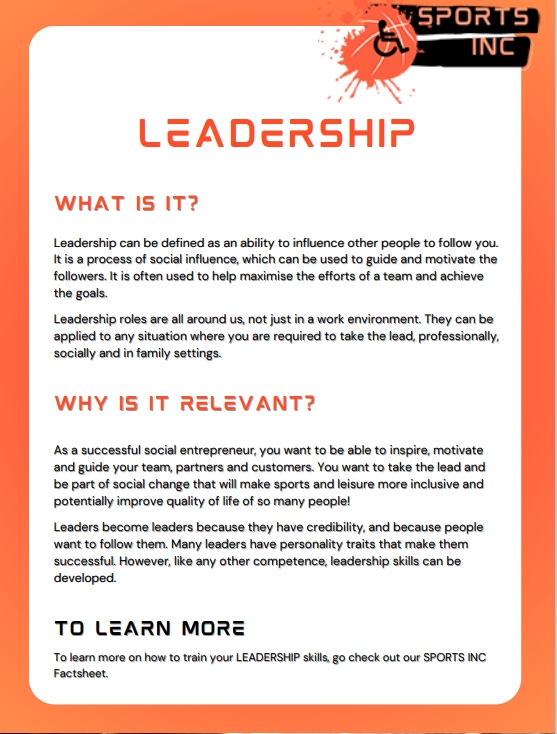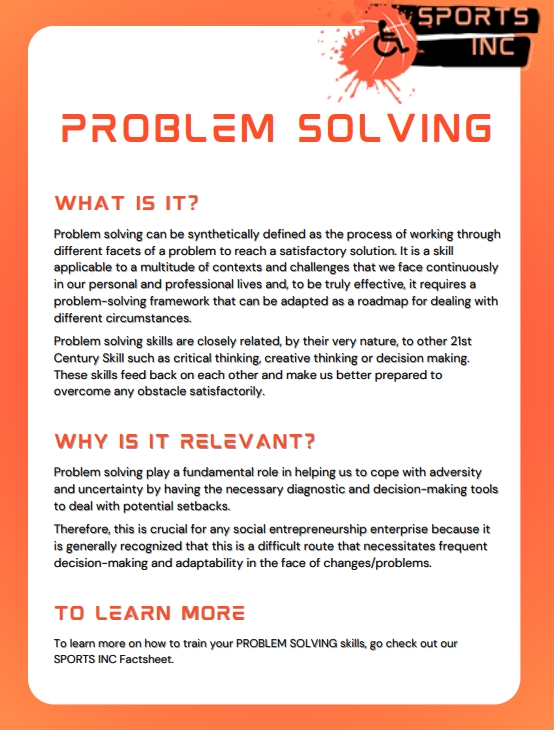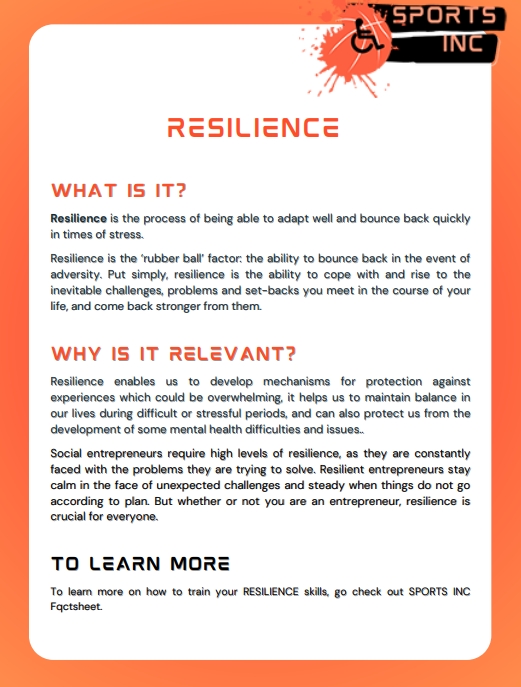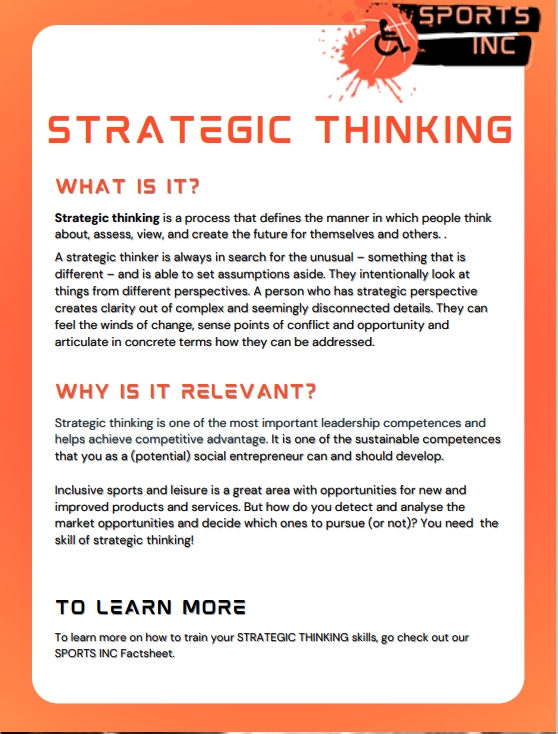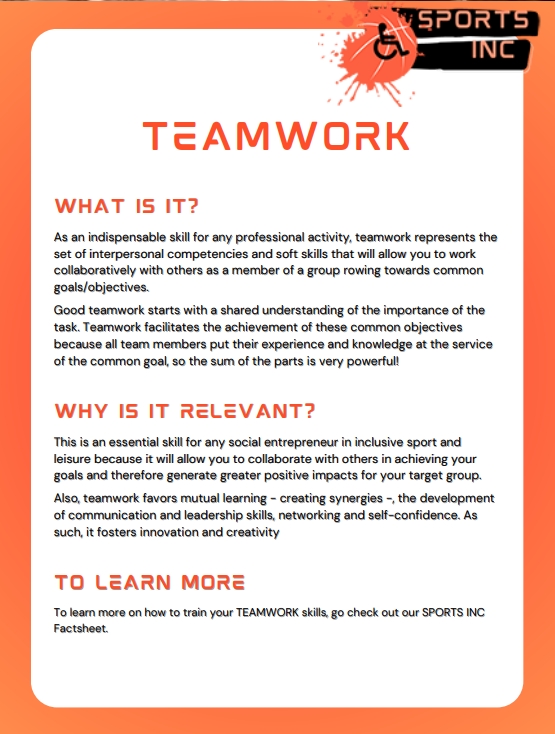RESILIENCE
Resilience is the ability to recover from setbacks, bounce back from difficult events and keep motivation levels high. Without resilience, every failure, no matter how big or small, may seem like a disaster.
Resilience has been described as the “capacity to remain flexible in our thoughts, feelings, and behaviors when faced by life disruption, or extended periods of pressure, so that we emerge from difficulty stronger, wiser, and more able” (Pemberton).
Resilience of an entrepreneur may be related to a combination of internal and external factors – personality traits, tendency to take responsibility for own success or failure, social norms, the culture that accepts or doesn’t accept failure as a learning experience, etc.
Often resilience is listed among the most important characteristics for an (aspiring) entrepreneur, as it may determine the level of success in a long term.
RESILIENCE SKILLS
“Success is not final; failure is not fatal: it is the courage to continue the counts.” – Winston S. Churchill
Resilience can be determined as a ‘Wobble skill’ according to Dr. Laura Jana (Pediatrician, educator, health communicator and award-winning author). Wobbles skills are skills that allow for, builds and fosters agility, adaptability, resilience, and confer the ability to face, overcome, and learn from failure.
How do you know if you are resilient? Here are a few characteristics that resilient people demonstrate:
- A high level of self-awareness and self-worth – they understand their emotions, strengths and weaknesses, have a strong sense of own worth and act based on their values,
- Flexibility and adaptability – they are able to see the big picture, accept other perspectives and ideas, and adapt and change if needed,
- Autonomy and resourcefulness – they accept the responsibility of own actions and for what happens in their life, they can regulate their emotional response and find practical and creative solutions to any problems,
- Optimism and self-compassion – they look for good in all situations and see failures as learning experiences, and treat themselves well, without excessive self-criticism,
- Ability to create good relationships and support network and ask for help when necessary.
BENEFITS OF RESILIENCE
There are a number of benefits of resilience:
- better work quality and productivity
- improved working relationships and teamwork
- better handling of challenges – and better solutions
- higher chances of a long-term success
- reduced level and impact of stress
better overall mental wellbeing and improved job and life satisfaction
HOW TO BOOST YOUR RESILIENCE SKILLS
Would you like to boost your resilience skills? Here are several ways to do it:
- Practice looking at the same situation from different perspectives – reframing it may help you stay positive and find a better solution or way forward.
- Get connected – build positive relationships that allow to offer mutual support and acceptance, and ask and offer help when necessary.
- Be proactive – do not ignore the problems, take action and trust that you can find a solution to improve any situation.
- Recognise the temporary nature of all that happens – whatever seems like a setback is only temporary, perhaps a lesson to be learned and applied in the future.
- Embrace change and see it as an opportunity.
- Take care of yourself – be kind as you would be to your best friend, remember to take care of your needs, respect your rest and relaxation time, and cultivate self-compassion, forgiveness and gratitude.
- Don’t get discouraged, it may take time to build resilience but you can do it!
ADDITIONAL RESOURCES
· The 7 key skills of resilient people
· Developing Resilience
· 6 ways to increase your resilience as a Social Entrepreneur
· The three secrets of resilient people (video)

